Crypto Casinos Explained: How They Work, Legal Status, and Key Risks
Vuk Martinovic
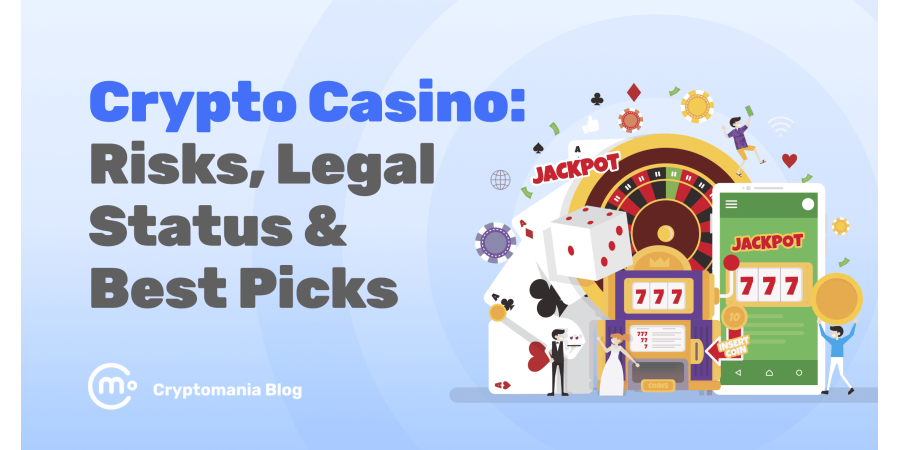

Crypto casinos are online gambling platforms that use digital currencies like Bitcoin, Ethereum, or USDT instead of traditional money. They’ve grown from a fringe idea into one of the most profitable parts of online gaming.
In 2024 alone, the global crypto gambling market generated more than $80 billion in gross gaming revenue. That’s a 5x increase from 2022.
This boom comes from how blockchain technology changes trust. Crypto casinos promise faster payouts, anonymous play, and games that can be mathematically verified as fair. But the rise of these platforms also raises questions:
- Are they legal?
- How do they actually work?
- What risks should players know about before they send Bitcoin to a casino wallet?
I’ll break it all down in this article.
Let’s get started!
How crypto casinos work
Crypto casinos operate just like traditional online casinos. But instead of deposits through credit cards or e-wallets, everything runs through blockchain transactions.
The difference is how games are verified, how payouts happen, and how user identity is handled.
Blockchain-based transactions
At the core of a crypto casino is the use of cryptocurrency wallets. Players deposit coins such as Bitcoin or Ethereum into the casino’s wallet address, place bets, and withdraw winnings back to their own wallet.
Because these transactions are recorded on a public blockchain, they don’t depend on banks or middlemen. This means:
- Deposits and withdrawals usually clear within minutes.
- Fees are lower compared to credit card or PayPal payments.
- Each transaction can be tracked and verified by anyone.
This is great for players who are tired of slow withdrawals and hidden charges on traditional sites.
Provably fair gaming systems
The “special” feature of many crypto casinos is provably fair gaming. This uses cryptographic algorithms to prove that the outcome of every game hasn’t been tampered with.
Here’s how it works in simple terms:
- Before a game round begins, the casino provides a hashed version of the outcome (a string of numbers and letters).
- After the game, the actual “seed” or result is revealed.
- Players can compare the two and confirm that the hash matches the final result.
This system lets players independently verify fairness. It’s something that’s impossible in traditional casinos, where the results are hidden in the casino’s internal systems.
Smart contracts and instant payouts
Some crypto casinos go a step further by using smart contracts. These are self-executing code that runs on blockchains like Ethereum. These contracts automatically handle bets and payouts.
Once a player wins, the contract releases the funds directly to their wallet. There’s no delay, no manual approval, and no chance of human error. It’s a trustless process. The outcome and payment happen automatically, exactly as programmed.
Minimal KYC and anonymous play
Unlike licensed traditional casinos, many crypto gambling sites require little to no Know Your Customer (KYC) verification. Players can often start betting with just a wallet address or an email.
This anonymity means faster registration and more privacy. But it also comes with trade-offs. Without KYC, players don’t have real protection if a site refuses to pay or gets hacked. And in some regions, anonymous gambling is against regulations.
Crypto-native games
Crypto casinos don’t host just the same old slots and poker tables. They’ve introduced new blockchain-native games that reflect crypto culture itself. Popular examples include:
- Crash: players bet on a rising multiplier that can “crash” at any second.
- Mines: a crypto version of Minesweeper with instant payouts.
- Plinko: inspired by the classic game show, with a verifiable fair algorithm behind it.
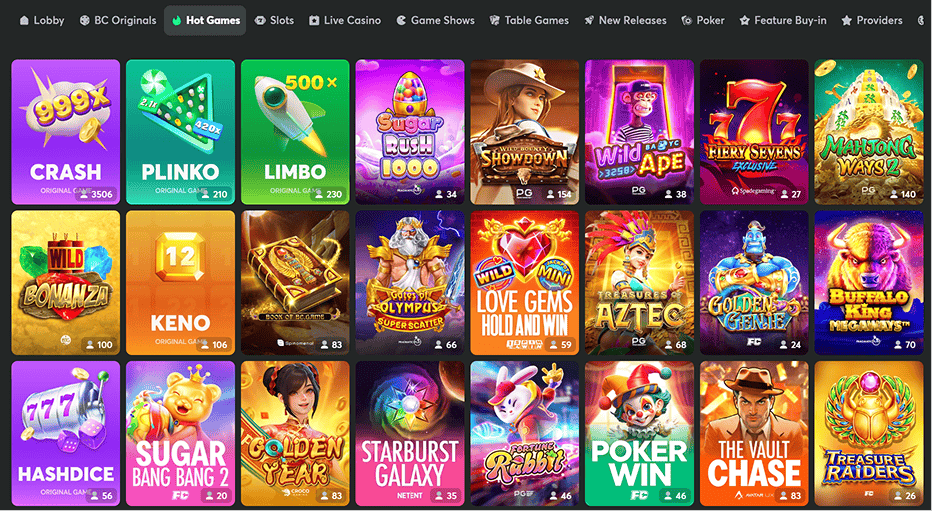
Many platforms, like BC.Game or Stake, also build in-house games with their own algorithms.
Legal status of crypto casinos worldwide
The legality of crypto casinos varies. Adding crypto to gambling creates new gray areas that laws haven’t fully caught up with.
Offshore licensing and regulation
Most crypto casinos operate under offshore licenses from Curaçao, Costa Rica, Anjouan, or similar jurisdictions. These regions make licensing fast and affordable. But the oversight is limited.
A Curaçao license, for example, allows operators to accept Bitcoin deposits globally, yet it doesn’t guarantee player protection.
Some newer regulators, such as Anjouan, have started issuing crypto-specific licenses that focus on basic anti-money laundering (AML) compliance rather than full consumer safeguards.
Regional differences
Different regions have different rules.
- United States: Legal only within state-licensed platforms. Offshore crypto casinos aren’t authorized, though many players use VPNs.
- UK and EU: Regulators permit crypto payments only if the casino is fully licensed and performs KYC checks.
- Asia and Latin America: Large, fast-growing markets with lighter enforcement and higher offshore activity.
This mix leaves crypto casinos operating in a global gray zone. It’s technically accessible almost anywhere, but it’s rarely officially approved.
Regulatory outlook
Regulators are moving from bans toward compliance-based approaches. Some are exploring hybrid models that let casinos use crypto as long as they meet AML and player-safety standards.
Meanwhile, a few licensed casinos in Europe already accept Bitcoin legally. It’s a sign that crypto gambling is (slowly) moving toward mainstream regulation.
Why players choose crypto casinos
Crypto casinos have become more popular because they fix some of the biggest frustrations players face with traditional gambling sites:
- Slow withdrawals
- Identity checks
- Trust issues
By using blockchain technology, they offer speed, privacy, and transparency that regular casinos can’t match.
Simply put: they’re often more convenient.
Speed and borderless access
Crypto transactions are fast. Players can deposit Bitcoin, Ethereum, or stablecoins and start playing within minutes.
Withdrawals are just as quick. There’s no waiting days for bank transfers or credit card approvals.
Since blockchains are global, these casinos work almost anywhere, so users have access even in countries with limited payment options.
Privacy and pseudonymity
Privacy is a big appeal of crypto casinos. Players only need a wallet address or an email, not a full ID verification. This reduces the risk of identity theft or data breaches and gives users more control over their information.
While this anonymity appeals to many, it’s also a key reason regulators are concerned. The same privacy that protects users can also make oversight difficult.
Generous bonuses and rewards
Crypto casinos are famous for offering larger bonuses than traditional gambling platforms. With lower transaction fees and fewer intermediaries, they can fund promotions like 200% deposit matches, rakeback systems, and cashback programs.
Some even distribute their own tokens or NFTs as loyalty rewards.
Transparency and fairness
Finally, players value the provably fair model that blockchain makes possible. Each roll or spin can be verified through public cryptographic proofs. There’s no need to trust the casino’s internal systems.
That sense of fairness (being able to check the math yourself) has become a big feature of crypto gambling.
Key risks and downsides
Crypto casinos offer exciting advantages, but they also carry serious risks.
Before wagering crypto, it’s important to understand what those risks look like in practice.
Lack of regulation and legal protection
The biggest concern is the absence of strict oversight. Many crypto casinos are based in offshore jurisdictions that provide minimal consumer protection.
If a site refuses to pay out winnings or disappears overnight, there’s rarely a regulator to contact or a refund policy to rely on.
Traditional casinos licensed in the EU or UK must meet fairness and anti-fraud standards. Crypto casinos often make those rules optional. So, players rely on the operator’s reputation rather than enforceable law.
Volatility of cryptocurrency
Winnings in crypto can change value quickly. A player might win 0.1 BTC today, only to see its value drop by 20% before cashing out. The same volatility that attracts traders can turn gambling profits into losses overnight.
Some casinos offer stablecoin options like USDT or USDC to avoid this problem, but volatility still adds an extra layer of risk that doesn’t exist with fiat currency.
Security and hacks
Because crypto casinos hold significant funds in digital wallets, they’re frequent targets for hackers. In 2023, Stake.com lost roughly $41 million in a high-profile hack that forced temporary shutdowns.
While the casino later recovered, not every platform can absorb such losses.
Scams and unfair practices
The lack of regulation also opens the door to fraudulent or fake casinos. Some clone legitimate sites to steal deposits or block withdrawals after large wins.
Others advertise “provably fair” systems but never reveal the verification process. You must research carefully and stick to platforms with verifiable transparency.
Using crypto casinos usually doesn’t involve safety nets. Always proceed with caution.
Problem gambling risks
Finally, anonymous play removes most responsible-gambling safeguards. Without KYC systems, it’s difficult to enforce deposit limits or detect compulsive behavior.
Crypto casinos make gambling faster and more accessible. And that accessibility can easily turn dangerous if you don’t set your own limits.
Traditional online casinos that accept crypto
Not every crypto gambling platform is built from scratch. Many traditional online casinos have started accepting Bitcoin, Ethereum, and stablecoins as payment options. They combine the convenience of crypto and the structure of licensed gaming.
In these hybrid models, deposits and withdrawals happen in crypto, but the gameplay itself still runs in fiat currency.
The casino automatically converts tokens at the current exchange rate, allowing players to bet in familiar denominations while still enjoying faster transactions and lower fees.
Unlike crypto-native casinos, these platforms maintain full KYC and AML procedures, so users must verify their identity before playing. The trade-off is clear: less privacy, but more protection. Licensed casinos also provide dispute resolution channels and must undergo regular audits to ensure fairness.
Notable examples include:
- BitStarz, one of the first licensed online casinos to support Bitcoin
- Cloudbet, which operates with full licensing in Montenegro and Curaçao
Both have shown that crypto payments can coexist with regulated operations. It’s the middle ground between anonymity and accountability.
Top crypto casino platforms in 2025
While hundreds of sites now accept crypto for gambling, only a few have earned global recognition for transparency, reliability, and innovation. Below are some of the leading examples in 2025, each showcasing a different approach to crypto gaming.
Stake.com
Launched in 2017, Stake has grown into the largest crypto-only casino and sportsbook in the world. Licensed in Curaçao, it offers thousands of casino games, a full sportsbook, and exclusive in-house titles like Crash and Plinko.

Stake offers a sleek interface, instant withdrawals, and a strong community presence. Its celebrity sponsorships (including UFC fighters and soccer clubs) have helped push crypto gambling into the mainstream.
Lucky Block
A newer name, but already one of the fastest-growing crypto casinos. Licensed in Anjouan, Lucky Block supports over 4,000 games and multiple cryptocurrencies.

It also has its own native token, LBLOCK, used for bonuses and cashback rewards. The platform allows quick registration without full KYC and advertises large welcome packages.
BC.Game
Founded in 2018, BC.Game is a community-driven platform that accepts more than 100 cryptocurrencies. It hosts both traditional games and original blockchain-based titles like Limbo and Hash Dice.
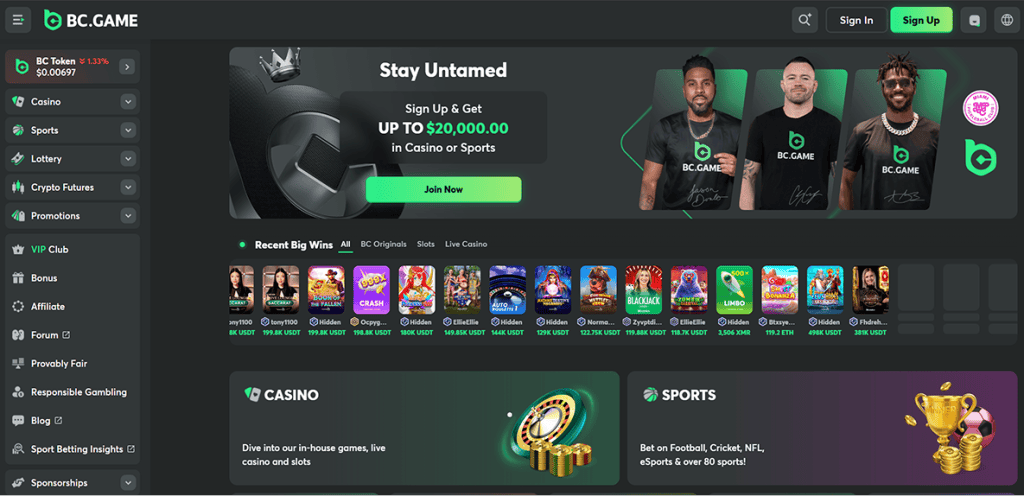
The casino’s tiered bonus system, worth up to $220,000 across several deposits, attracts long-term players.
BitStarz
BitStarz was one of the first licensed casinos to integrate Bitcoin back in 2014. It combines crypto convenience with regulatory oversight under a Curaçao license.
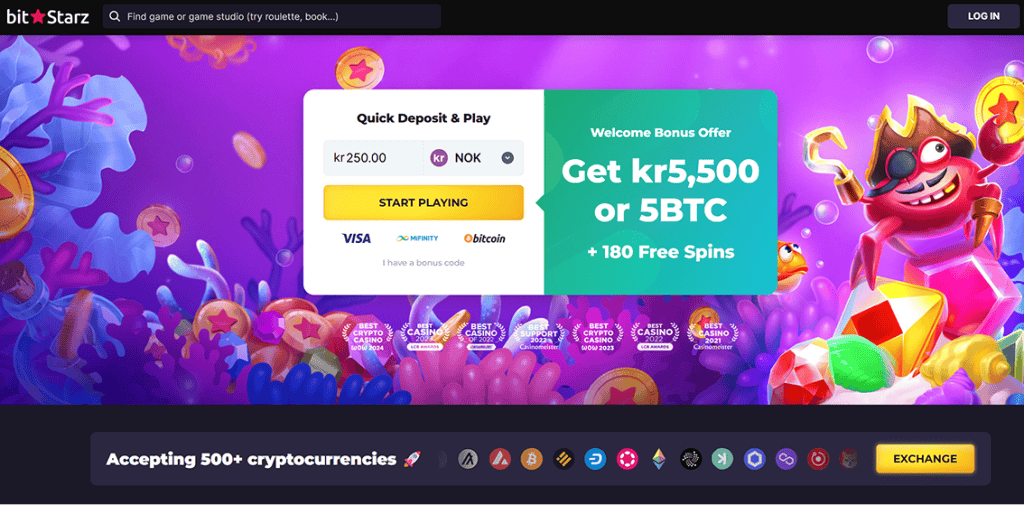
The site offers over 7,000 games, audited RNGs, and multi-currency support. Fast withdrawals and an established reputation make it a bridge between crypto-native and traditional casino worlds.
Cloudbet
Operating since 2013, Cloudbet is one of the most trusted Bitcoin casinos in the industry. It’s licensed in both Montenegro and Curaçao and provides a large selection of casino and sportsbook options.
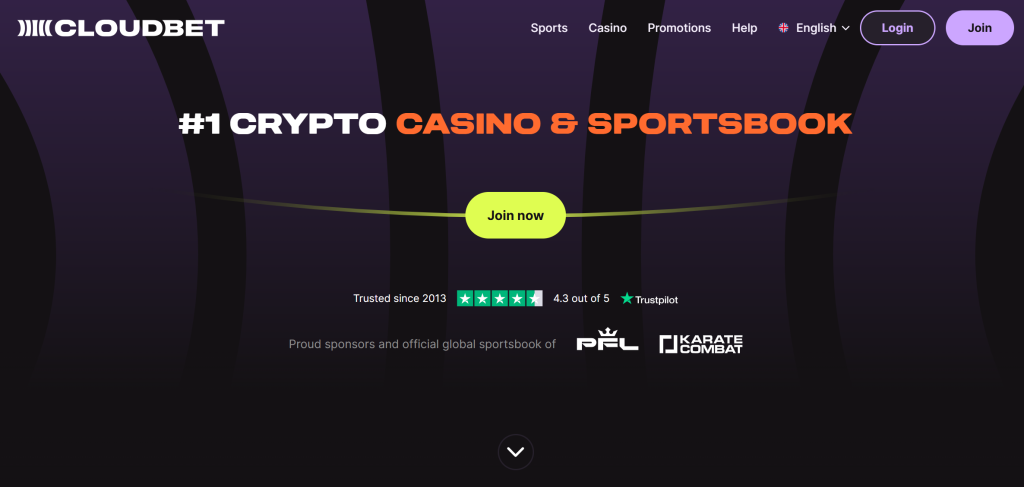
Cloudbet built its reputation on strong security, third-party game audits, and transparent odds. Players can start with just an email.
The future of crypto casinos
Crypto casinos have become a core part of the global gambling market. They attract millions of players who want:
- Speed
- Transparency
- Independence from banks
But in my opinion, their future will depend on how they handle growth, regulation, and player safety.
Over the next few years, more governments are expected to tighten oversight. Instead of outright bans, regulators are likely to demand clearer KYC rules, fair play audits, and compliance with anti-money-laundering laws.
At the same time, some forward-looking regions may introduce crypto-friendly licenses. It would allow blockchain-based gambling under official supervision.
Technologically, the next step could be fully on-chain casinos, where games, payouts, and house funds all run transparently through smart contracts. The adoption of stablecoins may also solve the volatility problem, so as to make crypto betting more stable and predictable.
The industry is evolving quickly. For now, crypto casinos offer an exciting but high-risk frontier. It’s one that rewards those who understand both the opportunities and the dangers that come with betting on the blockchain.





